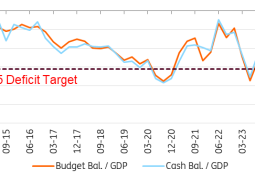Scent of Thailand’s famous fragrant rice is fading

FAILURE to win the honour of the world’s best fragrant rice for two consecutive years has jolted Thailand – home of the Hom Mali (jasmine) rice – into overhauling its research and development to catch up with changing global demand for fragrant rice.
It is now focusing on improving its Hom Mali varieties, which had previously won the contest for five consecutive years.
Thailand’s Hom Mali rice was beaten last year by Cambodia’s fragrant rice and this year by Vietnam’s ST25 variety.
Thai Rice Exporters Association president Charoen Laothamatas said that it’s about time that both the government and the private sector join hands in a more serious effort to improve the quality of Thai rice to meet the global market’s expectations.
He said the situation now is different from two decades ago, when Thailand was the world’s major rice exporter and could sell whatever rice it produced.
“The country’s reputation for producing quality rice is suffering due to a lack of effective research and development to create better varieties of Thai Hom Mali rice,” he said.
According to the Bangkok Post, he said the strong baht has also exacerbated the rice export situation, pushing the price of Thai rice to US$1,100 (RM4,600) higher per tonne than its competitors.
As a result, Vietnam, for instance, is gaining a larger market share in the global rice trade, as it can sell its rice for half the price that Thailand can.
Vietnam won this year’s competition because it has continued developing its rice varieties to improve both quality and crop yield.
Charoen said Thailand had stuck to its old varieties such as Thai Hom Mali and Pathum Thani 1 and has not created any new strain for a long time.
The yield of Thai rice is about 400 kilogrammes per 0.16 hectare, which is fairly low when compared with the 1,000 kg per 0.16 hectare yielded in Vietnam.
Buyers in the world market are now looking for rice with a soft texture, but Thai rice remains as hard as it was many years ago.
He said that despite the development of some new softer varieties, the work of promoting them among rice growers has been slow and far from successful.
This has left exporters unable to respond to demand for rice with a soft texture.
“If nothing is done to improve this problem, Thai Hom Mali rice will soon become a thing of the past,” Charoen said, adding that when consumers get used to the taste of cheaper rice from other rice exporting countries, it will become highly difficult for Thailand to regain a foothold.
Thailand Development Research Institute distinguished fellow Nipon Poapongsakorn said one way to help bring the price down is to slash production costs by increasing the yield.
“Thailand may consider developing a rice variety that is less fragrant, yet gives a higher yield for the sake of cost cutting,” he said.
He added that the yield of the off-season crop needs to rise to at least 1,000 kg per 0.16 hectare as China’s hybrid rice variety now yields up to 2,000 kg per 0.16 hectare.
Charoen also blamed Thailand’s lack of rice variety development on politicians competing to win farmers’ support only through price guarantees or other types of price intervention.
“These policies have failed to give any incentive for research and development into new varieties. As farmers are satisfied with these price intervention policies, they are no longer interested in improving the quality or yield.”
Nipon said that the current 200-300 million baht (RM27.6-RM41.5 million) yearly budget for research is far from sufficient to attract capable and talented researchers.
“Thailand’s competitors are spending far more money on their rice research,” he said.
As of August this year, Thailand was the second-largest exporter of rice in the world, ranked only behind India, but far ahead of all of its Southeast Asian competitors.
- Previous Is there room for Turkey in NATO’s future?
- Next Floods force 10 road closures in Terengganu, Malasia
















